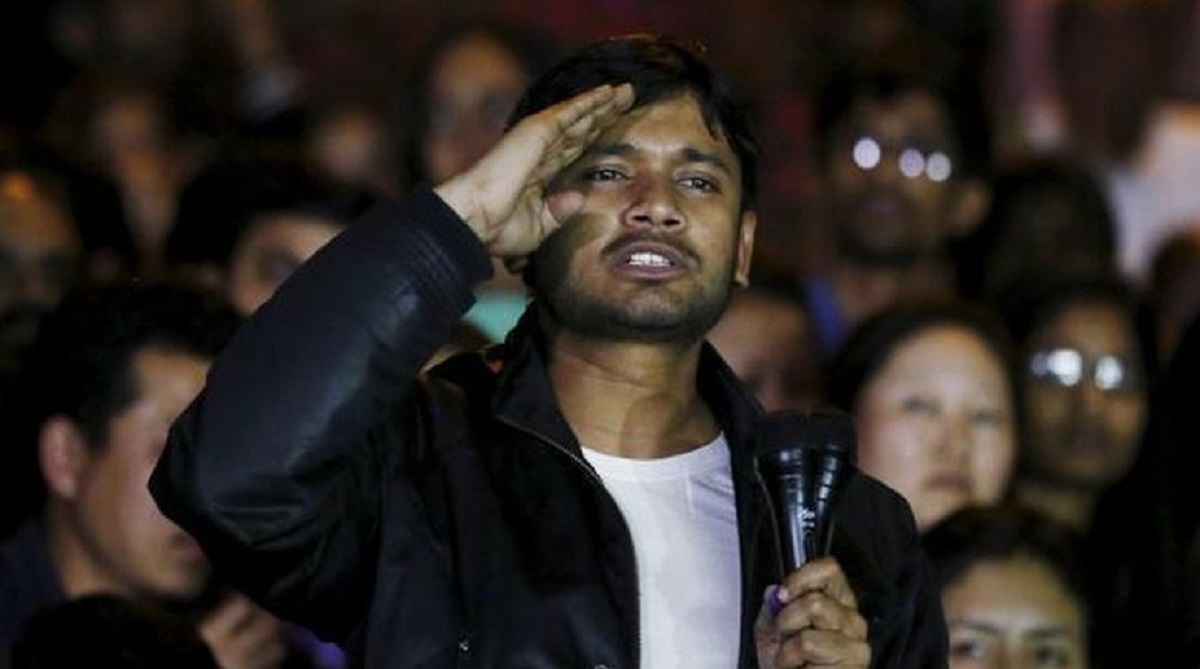LS polls: Congress fields Kanhaiya Kumar from North-East Delhi seat
The Congress has also announced seven other candidates for Punjab and Uttar Pradesh.
Now that we have a democratic government, a line must be drawn between criticism of government which should be welcome and incitement to violence.

Filing a 1,200-page chargesheet against the Jawaharlal Nehru University students Kanhaiya Kumar, Syed Umar Khalid and Anirban Bhatacharya is nothing but a politically motivated act. (Photo: AFP)
Sedition was not a part of the original Section 124 of the Indian Penal Code enacted by the British colonial government in 1860. It was incorporated as Section 124 A in 1870 to silence and put behind bars freedom fighters. Sedition has no place in a 21st century democracy and should be repealed as it is unconstitutional. It violates our fundamental right under Article 19 (1) (a) (freedom of speech and expression). Filing a 1,200-page chargesheet against the Jawaharlal Nehru University students Kanhaiya Kumar, Syed Umar Khalid and Anirban Bhatacharya for shouting slogans in the campus against the hanging of Afzal Guru, convicted in the Parliament House attack case in 2016 under IPC 124A, 143, 147, 149, 323, 465 and 471 is nothing but a politically motivated act. The late CN Annadurai, founder-leader of the DMK and former Chief Minister of Madras State (now Tamil Nadu), opposing imposition of Hindi as the sole national language, said in Parliament in 1962, “We the Dravidians want the right to self-determination,” and demanded the formation of a separate Tamil nation. The Congress government of Nehru was not rattled and no sedition charge was brought against Annadurai. University students are prone to dissent and to make radical speeches. The BJP government of Narendra Modi lacks the tolerance to ignore such sound and fury. Invoking sedition law against the students is violation of a number of judgments of the Supreme Court which narrowed the scope of Section 124 A of the IPC.
In the Constituent Assembly, when the subject of sedition came up for discussion, KM Munshi moved an amendment to delete Section 124 A of the IPC, stating that “even holding an opinion against, which will bring ill-will towards the government, was considered sedition once. Now that we have a democratic government, a line must be drawn between criticism of government which should be welcome and incitement to violence. As a matter of fact, the essence of democracy is criticism of government.” Munshi’s amendment was accepted and sedition did not besmirch the Constitution of India. However, sedition crept into the statute book through an oversight of the IPC. Of late, misuse of sedition has multiplied. In November 2015, the Tamil Nadu government arrested under Section 124 A, a popular folk singer, S Kovan. His crime: two songs pillorying Chief Minister Jayalalitha and her government for its policy of retailing liquor. A metropolitan magistrate routinely remanded Kovan in judicial custody. There was nothing in the songs that remotely threatened the government or any incitement to violence. The songs sought closure of State-run liquor shops, in keeping with the spirit of Article 47 of the Constitution. Earlier, the government slapped sedition charges on protestors against the Koodankulam nuclear power plant. As long as Section 124 A remains in the IPC, governments will use it against inconvenient citizens as with the recent arrest of the Assamese scholar Hiren Gohain.
Advertisement
Advertisement